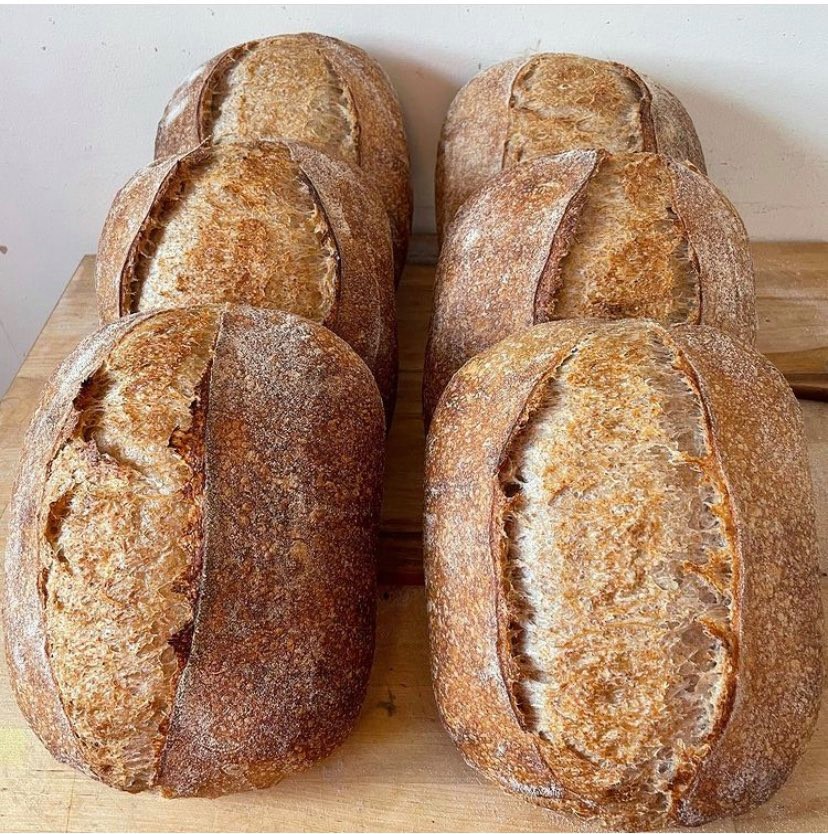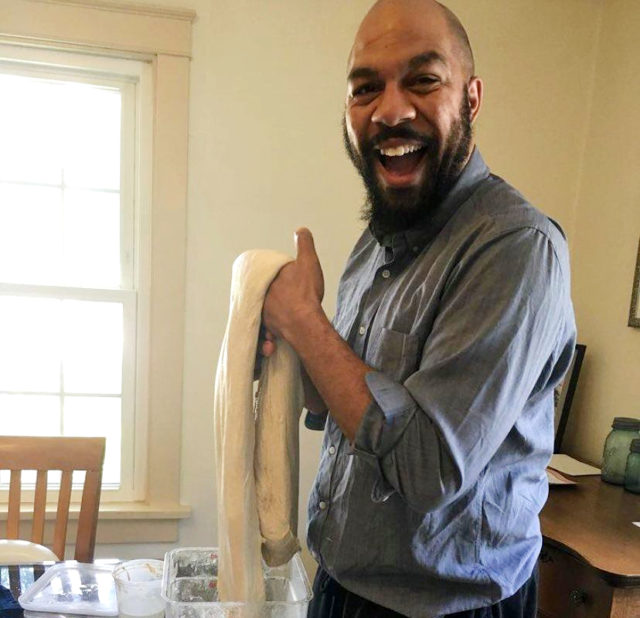On Thursday mornings, Maurice “Mo” Cheeks rolls out of bed to preheat the oven for a fresh batch of sourdough bread for patrons of his latest pandemic hobby turned philanthropic endeavor “Bread and Justice.”
“I have to go to bed early so I can wake up super early, 3:30 am to preheat the oven, go back to bed and get up at 4:30 am to make the bread in my home oven,” the former said the Madison City Council member and Madison mayoral candidate.
Last summer, Cheeks joined a group of bakers across the country in a national bake sale called #BakersAgainstRacism. Now, he sells the bread he bakes to subscribers of his newsletter.
“It started with me just giving bread to my friends because I was making too much of it, too much for my family to eat,” Cheeks said.
Before Bread & Justice, he would not have described himself as a particularly creative person. He didn’t have any hobbies as creative as baking which he finds fun. In his newsletter, Cheeks shares his reflections on current events, images of sourdough, and information about causes he has chosen to support.
“Each month, I select a different nonprofit that I’m going to donate to and all of this gets communicated through my newsletter, so [in] January we donated to Second Harvest and for February we’re donating to the Center for Black Excellence and Culture,” Cheeks said.
He uses the proceeds from bread sales to make charitable donations to organizations fighting against racism and/or working towards creating a more equitable society. Cheeks chose The Center for Black Excellence & Culture in recognition of Black History Month. After all of the bread sales and donations made, Bread & Justice donated a total of $770 to the center.
Cheeks founded Bread & Justice last summer. He began baking naturally-leavened sourdough bread in January 2020. Cheeks donates to both local and national organizations.
“I bake twice a week right now so my bake days are Tuesday and Thursday. In order to have bread ready for people Tuesday and Thursday, I have to start my process two days ahead of time,” Cheeks said.
At first, he would bake on weekends for fun and then give bread away to friends in the Madison area. Then, his friends suggested the idea of selling the bread. Cheeks describes baking as both therapeutic and a form of self-care.

“For the past several years, it seems like there’s been a repeated news cycle of Black folks getting killed by the police,” he said. “I think a lot of us go through the cycle when we see and hear it. Then, we go through a cycle where we feel angry but not surprised, fearful.”
After the murders of Breonna Taylor and George Floyd, mixing the flour, rolling the dough, and baking the bread offered Cheeks an outlet for the range of emotions he experienced throughout this time. These killings would keep him up in the middle of the night but he found sourdough both relaxing and calming.
“The process of making sourdough bread takes over 24 hours. Last night, I measured flour for the next morning and I fed my starter,” Cheeks said.
Sometimes his children participate in the activity. On Thursdays, Cheeks said he sometimes enlists the help of his kids to place stickers on the bags and place them in front for community members to pick them up. He said Bread & Justice has sort of become a simple way of creating a community of both bread and social justice lovers.
“It’s definitely going to keep going. The pandemic gave me the time to start building these skills and develop my skills as a baker but Bread and Justice will definitely continue as we make our way to the other side of the pandemic,” Cheeks said.




























